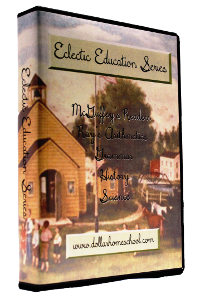 |
| God's Holy Commandments |
But there is another kind of "cheating" that isn't cheating at all; it's just an alternative way to learn, or to beat the "system."
For instance, I have often been stuck without a clue while working on a math problem, and peeking at the answers at the back of the book helped put me on the right track. This is not only allowable, this is expected, which is why textbook publishers have the even (or odd) answers included in the back. Most teachers expect students to show their work anyway, so it is really impossible to do anything unethical.
 |
| Working on a math problem |
There is another way to "cheat" that is often very beneficial; this is when one is supposed to read through a chapter of information and afterwards answer a series of questions in order to confirm comprehension of the material. The content of the reading assignment is usually the most important in the chapter, and the type that would most certainly be on a test. Now, if a person is extremely interested in the course of study, then he or she would probably want to read the chapter very carefully, and even follow up with a bit of additional research, but, unfortunately, most texts theses days are pretty dry, and the information they contain may be either irrelevant, slanted, or obvious propaganda. In such cases as these, a person just wants to grab the most pertinent data without clouding his or her mind with a lot of nonsense.
This is when the index becomes a student's best friend! By taking a key-word from the question and using it to look up the specific page, often the specific paragraph, in which it is contained, an accurate answer can be formulated. This is a great time-saver, and, especially when the class is required but is also full of a lot of hogwash, this saves brain-space for more important things!
 |
| Discovering the proper solution to a problem |
Regurgitation, as I call it, is one of the worst ways to really learn anything. It actually does very little for real retention at all, and is more about memorizing mere facts than in communicating important ideas that a student can then internalize so as to make a lasting impression on his or her reservoir of true and beneficial knowledge.
For instance, I might be able to rattle off the exact dates of the beginning of the Revolutionary War and some of the names of the major persons involved, but I might miss the actual reasons for the war, or the larger implications for mankind, or how the attitudes and ideals of the Founding Fathers could or should affect me in my thinking today. And even if I was made to memorize a statement or two concerning the reasons and effects, it would make very little difference if I was not able to think them through for myself and connect them with other lessons of history or the way I look at my life.
Besides, there are so many angles from which to view any event in history. There are often many different ways to answer even the most basic question of why something happened. Was the Civil War fought exclusively over the issue of slavery?--not hardly!
 |
| A few of our own notebooking pages |
What are some of the alternatives that you have found?































0 comments :
Post a Comment